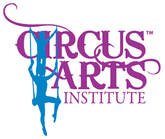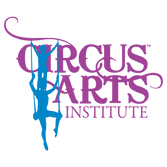CIRCUS ARTS THERAPY® Training
Level 1
The Level 1 training is designed for professionals and para-professionals interested in incorporating Adaptive Circus Arts into their work as a tool to help children, teens, adults, families and groups. This training can also assist those working in the Social Circus realm and is designed to help anyone leading groups: Recreational Adaptive classes, therapy groups and typical-population classes.
COURSE CURRICULUM
Circus Arts Therapy®: Introduction & Foundation
Neurotypical and Neurodiverse Aerial & Ground Training and Application
* Juggling Skills for solo, partner and group juggling, as well as skills on the buddy and team walkers, hula hoops, ramps and a variety of graded balance boards.
Independent Study Options
When participants go home after training, they will be asked to incorporate all they have learned into their work.
Independent study is not required for Circus Arts Therapy® Training participants. However, participants are encouraged to study independently with any of the following organizations:
- What is Circus Arts Therapy®? Introduction, Definition and Research including the Methodology behind the research-based Circus Arts Therapy® fitness and play therapy program.
- Goals of Circus Arts Therapy® and Application of Strategies & Treatment Techniques.
- What is in the Circus Arts Therapy® room: An introduction to aerial and ground equipment, including Adaptive Partner Acro.
- Who can benefit from Circus Arts Therapy®?
- Fitness benefits of using Chi Kung
- Sensory Integration including the benefits of brain and body balancing.
- Introduction to the use of therapeutic language
- Introduction to the learning modalities & Evidence Based teaching practices including how to develop individualized class student lesson plans, as well as client treatment plans and record keeping.
- How to conduct classes & therapy sessions for individuals and groups focusing on social skills such as trust, communication, leadership, frustration tolerance, empathy, self-expression, and teamwork
- Social Circus workshops, including but not limited to Problem Solving and Conflict Resolution, Safety Circle, Appreciations, and more
- Case studies, including practical review of videos
Neurotypical and Neurodiverse Aerial & Ground Training and Application
- Introduction to aerial equipment, including a basic review of safety and spotting techniques, rigging, anatomy and physiology, injury prevention, warming up and cooling down, cuing vocabulary, rescues and bails, skill analysis, risk analysis and mitigation
- Introduction to ground equipment including a basic review of safety and spotting techniques
- Adaptive Aerial and Ground Methodology
* The specific differences between working with neurotypical versus neurodiverse students
* How to create and modify skill progression when working with neurotypical versus neurodiverse populations - Language and specific skills that should be used when working with neurotypical versus neurodiverse populations
- Therapeutic application of aerial equipment for physical health benefits: Strengthening, range of motion, brain balancing for bilateral coordination, proper body mechanics
- Therapeutic application of aerial equipment for mental health benefits: Focusing and maintaining attention, frustration tolerance, confronting fears, self-esteem building
- Therapeutic application of aerial equipment for social skill development: Trust, communication, conflict resolution, and teamwork
- Classroom management skills including communication tools
- Skill Progressions; Lessons on how to spot and teach Typically Developing and Adaptive skills on:
* Juggling Skills for solo, partner and group juggling, as well as skills on the buddy and team walkers, hula hoops, ramps and a variety of graded balance boards.
Independent Study Options
When participants go home after training, they will be asked to incorporate all they have learned into their work.
Independent study is not required for Circus Arts Therapy® Training participants. However, participants are encouraged to study independently with any of the following organizations:
- Human Connection Project with Kevin and Erin Maile O'Keefe
- NECCA with Elsie Smith and Serenity Smith Forchion
- Prescott Circus in Oakland California
- Wise Fool in New Mexico
- Canopy Studios in Athens Georgia
- Check with the American Youth Circus Organization for circus schools in your area.


